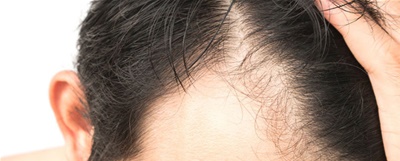 Monistat is known as Miconazole Nitrate, which is an FDA-approved treatment for vaginal yeast infections. Most balding men and women associate this cream with jock itch, not male and female pattern hair loss. However, some hair loss sufferers have experimented with this treatment and have found that the treatment not only regrows hair but accelerates hair growth. In this article, we will be discussing Monistat as a possible hair loss treatment.
Monistat is known as Miconazole Nitrate, which is an FDA-approved treatment for vaginal yeast infections. Most balding men and women associate this cream with jock itch, not male and female pattern hair loss. However, some hair loss sufferers have experimented with this treatment and have found that the treatment not only regrows hair but accelerates hair growth. In this article, we will be discussing Monistat as a possible hair loss treatment.
How Does Monistat Stop Hair Loss
There has been another anti-fungal drug that has been proven to treat androgenic alopecia (genetic hair loss). Ketoconazole is in the anti-fungal shampoo called Nizoral. Studies have shown that Nizoral has a similar efficacy as 2% minoxidil. The most effective hair loss combination is called the big-3. The big-3 consists of Propecia (finasteride), Rogaine (minoxidil), and Nizoral.
Miconazole is thought to contain the same anti-inflammatory benefit as ketoconazole. Miconazole supposedly unclogs hair follicle pores, which can harbor the hormone called DHT. DHT is the primary catalyst for hereditary hair loss. DHT is in the sebaceous glands on the scalp. Miconazole removes excess sebum.
Are There Clinical Studies
Unfortunately, the clinical evidence is lacking, and the information found online is purely anecdotal. Some physicians don't think that miconazole will do anything for hair loss. Miconazole does have some adverse reactions such as itching, burning, stinging, and irritation. Moreover, physicians warn about anaphylactic shock, which can be life-threatening if not treated immediately.
Conclusion
A quick google and YouTube search will show hundreds of anecdotal reviews and results. However, most of these results are for hair growth and not hair loss. There is a clear distinction between accelerating hair growth and preventing, slowing, and stopping hair loss. At this point, there is no clinical data to prove this is a viable treatment for genetic hair loss.

